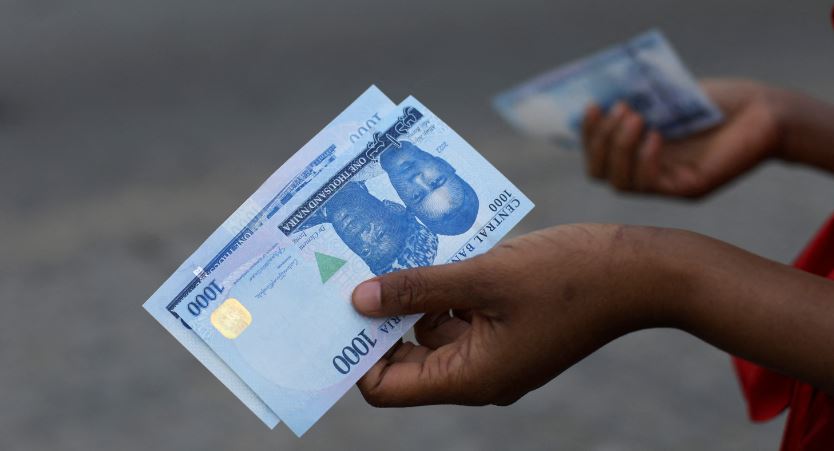The recent introduction of a new levy on electronic banking transactions has sparked widespread criticism among Nigerians, with many expressing concerns that it will incentivize a return to cash-based transactions.
The Central Bank of Nigeria (CBN) has informed financial institutions that the implementation of a 0.5% levy, aimed at generating funds to bolster cybersecurity measures, will commence in two weeks.
Amid Nigeria’s severe economic downturn, characterized as the worst in decades, citizens fear that the levy will exacerbate financial strain, making it even more challenging to afford essential goods and services.
Dr. Abdulrazaq Fagge, an economics lecturer at Yusuf Maitama University, deems the government’s decision misguided, emphasizing its adverse implications for the country’s struggling economy.
“In addition to its poor timing, this levy imposes an unwarranted burden on citizens already grappling with economic hardships,” Dr. Fagge asserts. He further highlights the potential negative impact on small businesses.
“If you transfer a million naira, five thousand naira gets deducted as cybersecurity levy, which is not fair to ordinary persons.”
The lecturer says the money should be paid by banks as they make huge profits.
Bread seller Abubakar Sheka says he has already made up his mind to avoid electronic banking transactions by the time the levy starts on 20 May.
“There is no way I will agree to be giving 0.5 percent on my transfers when I earn very little, many people don’t buy bread now and business is fragile.
“Why will this government further make us cry with this despite what we are already going through with high cost of food and fuel?”
The Nigeria Labour Congress (NLC), a prominent workers’ union, has issued a statement denouncing the levy, while the Socio-Economic Rights and Accountability Project (SERAP) advocacy group has warned of potential legal action against the government.
As of now, the government has refrained from responding to the public backlash.
According to public affairs analyst Habu Sani, the government’s decision represents a significant setback for its efforts to promote a cashless economy, as it is likely to result in an increased reliance on cash transactions among the populace.
“Government pushed people to be using electronic transfers to reduce printing of cash which takes a toll on government finances and now this will further make people go back to cash to avoid paying the levy.
“I foresee a cash shortage soon if government doesn’t reverse its decision.”
Throughout much of 2023, there was a significant cash shortage following currency reforms initiated by the Central Bank of Nigeria (CBN) aimed at curbing fraud during the previous year’s election. This led to a surge in the adoption of mobile money services by many individuals.
The cash shortages began to alleviate towards the end of the year.
In 2024, only approximately eight percent of individuals aged between 16 and 64 utilized mobile payment services, marking a decline from the previous year.
The low digital penetration in Nigeria can be attributed to several factors, including limited mobile signal coverage in rural areas and the high cost of smartphones, which many individuals cannot afford.





